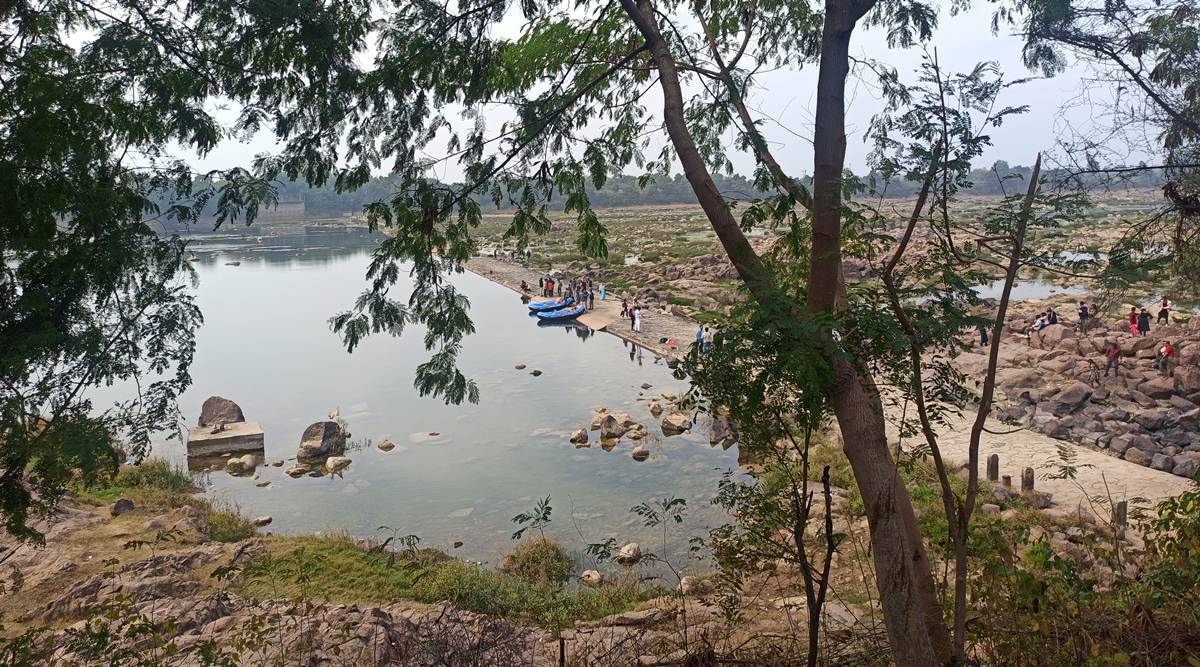 The Ken-Betwa River Link project is among those where stringent conditions to compensate its high environmental impact have been sidestepped.
The Ken-Betwa River Link project is among those where stringent conditions to compensate its high environmental impact have been sidestepped. Pumping in adequate government resources; stricter enforcement of deterrent penalties; engaging communities in a “democratic” monitoring regime; setting up a statutory independent authority.
These are the key recommendations made by top experts, including current and former members of various panels of the Government and Supreme Court, after an investigation by The Indian Express Friday found several cases of non-compliance in six mega projects to commitments made in order to obtain environment and forest clearance.
Experts were unanimous that non-compliance is one of the biggest challenges facing environmental governance in the country.
Conservationist Valmik Thapar, who has served in various expert panels of the Environment Ministry since the early 1990s, called it the “sinkhole” in the clearance system. “What this has come to, since the laws were enacted in the 1970s and 1980s, is deplorable. Everything is taken for granted when lawmakers themselves undermine the laws. The system needs shock therapy,” he said.
Environmentalist Ashish Kothari, Thapar’s former colleague in several expert panels, pointed to how “non-compliance has been defeating the very logic of the conditional clearance” process. “If the conditions are not fulfilled, logic demands that a conditional clearance should no longer be valid. But developers have been getting away with it for over three decades,” he said.
As a remedy, M K Ranjitsinh, who drafted the Wildlife Act while serving as an IAS officer, wants a regulatory body in line with instructions from the Supreme Court to ensure implementation of green laws.
“The Supreme Court reiterated it several times since its Lafarge judgment in 2011. Last year, it mandated our committee to consider a permanent expert body. We recommended a National Forest Conservation Authority (NFCA), formed under the FC Act and headed by a retired Supreme Court judge, in our report last month,” said Ranjitsinh, who chairs an expert panel set up by the apex court in 2021.
Former IFS officer and an expert member of the ministry’s Forest Advisory Committee (FAC), Anmol Kumar, however, feels effective monitoring boils down to adequate manpower as even a statutory authority will need “ears and eyes” on the ground.
“We need better monitoring and deterrent penalties. If the Ministry’s staff strength at the regional level cannot be improved immediately, third-party audits are an alternative. But these auditors cannot depend on the developers they audit for funds. The Government has to pay and that will require higher resource allocation.” Kumar said.
Ecologist Madhav Gadgil, who chaired the Environment Ministry’s Western Ghats Ecology Expert Panel, emphasised the importance of people’s participation to make the monitoring process reliable.
“While government officers may have various motives and third-party auditors are mostly interested in their fees, engaging communities not only democratises the process but makes monitoring more effective. They have a direct stake and often are better informed about local conditions,” Gadgil said.
Kothari pointed to the “inherent contradiction” in one arm of the government playing regulator to other arms implementing development projects.
“We need a National Environment Commission, a Constitutional authority like the Election Commission, independent of government pulls and pressures. Our task force recommended it for the Eleventh Plan (2007-2012). We need such an authority with state-level sub-commissions to examine whether the central and state governments are actually carrying out their environmental responsibilities as laid out in law and policy,” he said.
Thapar agreed. “We have reached this stage because of sarkari (ex-officio) experts, backed by a few pliable ones handpicked from outside. What we need is an independent authority where 70 per cent of members are reputed experts in their fields,” he said.
Ranjitsinh said he expected more from the judiciary in holding governments accountable for not carrying out court orders. “Though overburdened, the courts may have to devise a way to track the fate of their orders, at least in certain types of cases, to ensure those are implemented,” he said.
Ecologist Raman Sukumar, a member of the National Board for Wildlife (NBWL), recommended random field visits by trained officials and experts to monitor big projects. “We certainly need more accountability. This issue of non-compliance has been taken up repeatedly in the standing committee meetings. The primary responsibility should lie with the state governments and the field officers,” he said.
The six projects investigated by The Indian Express include: Ken-Betwa River Link, the flagship river-linking project in Madhya Pradesh; Dibang multipurpose project, the largest hydel plant proposed as part of the government’s Act East Policy in Arunachal; Lower Subansiri hydel project on the Arunachal-Assam border; the proposed international airport in Goa; the Kulda mine in Odisha run by the world’s largest coal producer; and the country’s first private mega thermal plant in Tamnar, Chhattisgarh.
The Indian Express found that in each project, stringent conditions to compensate for the project’s high environmental impact have been sidestepped, ignored or, in some cases, met only on paper.
- The Indian Express website has been rated GREEN for its credibility and trustworthiness by Newsguard, a global service that rates news sources for their journalistic standards.

